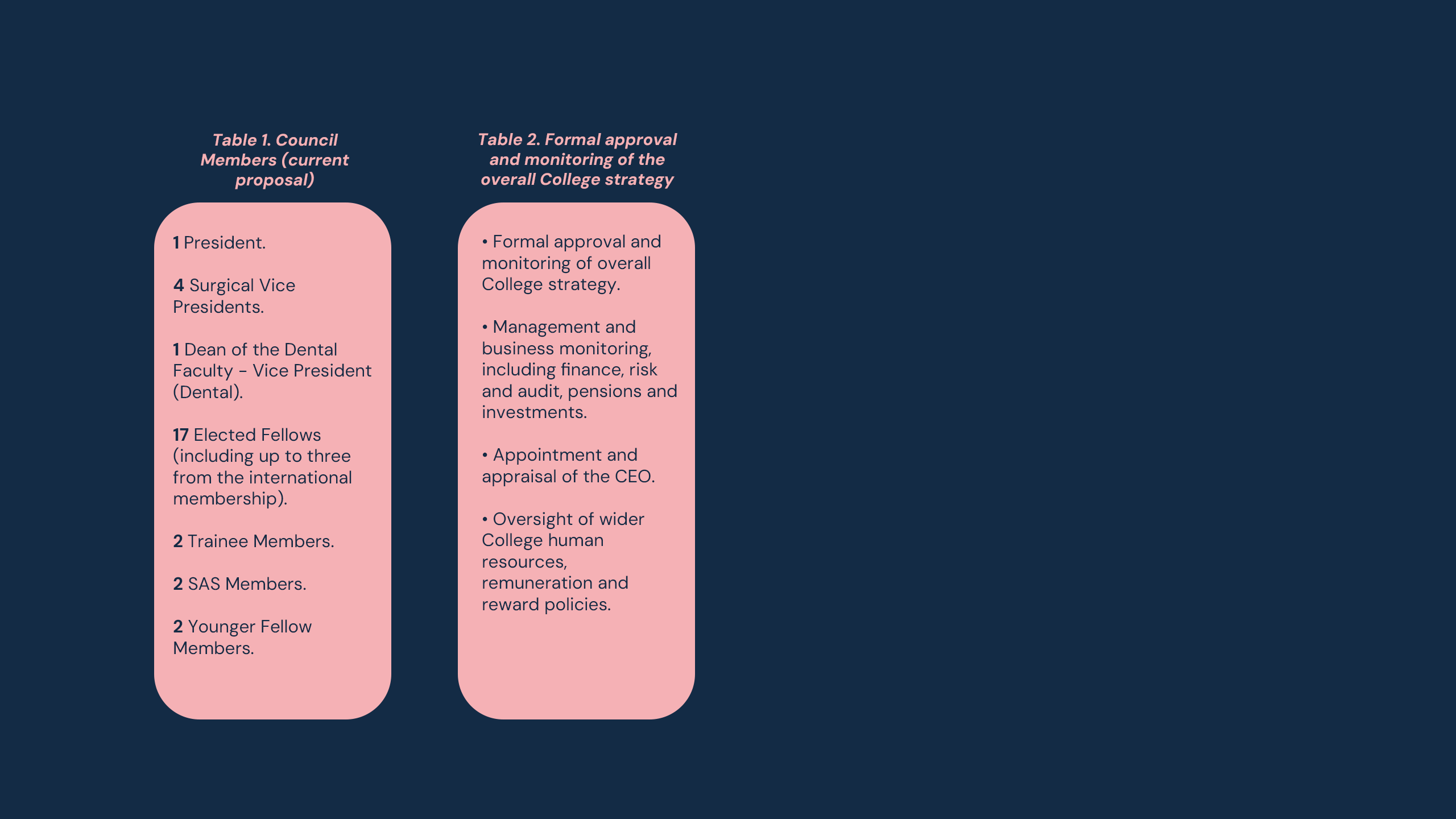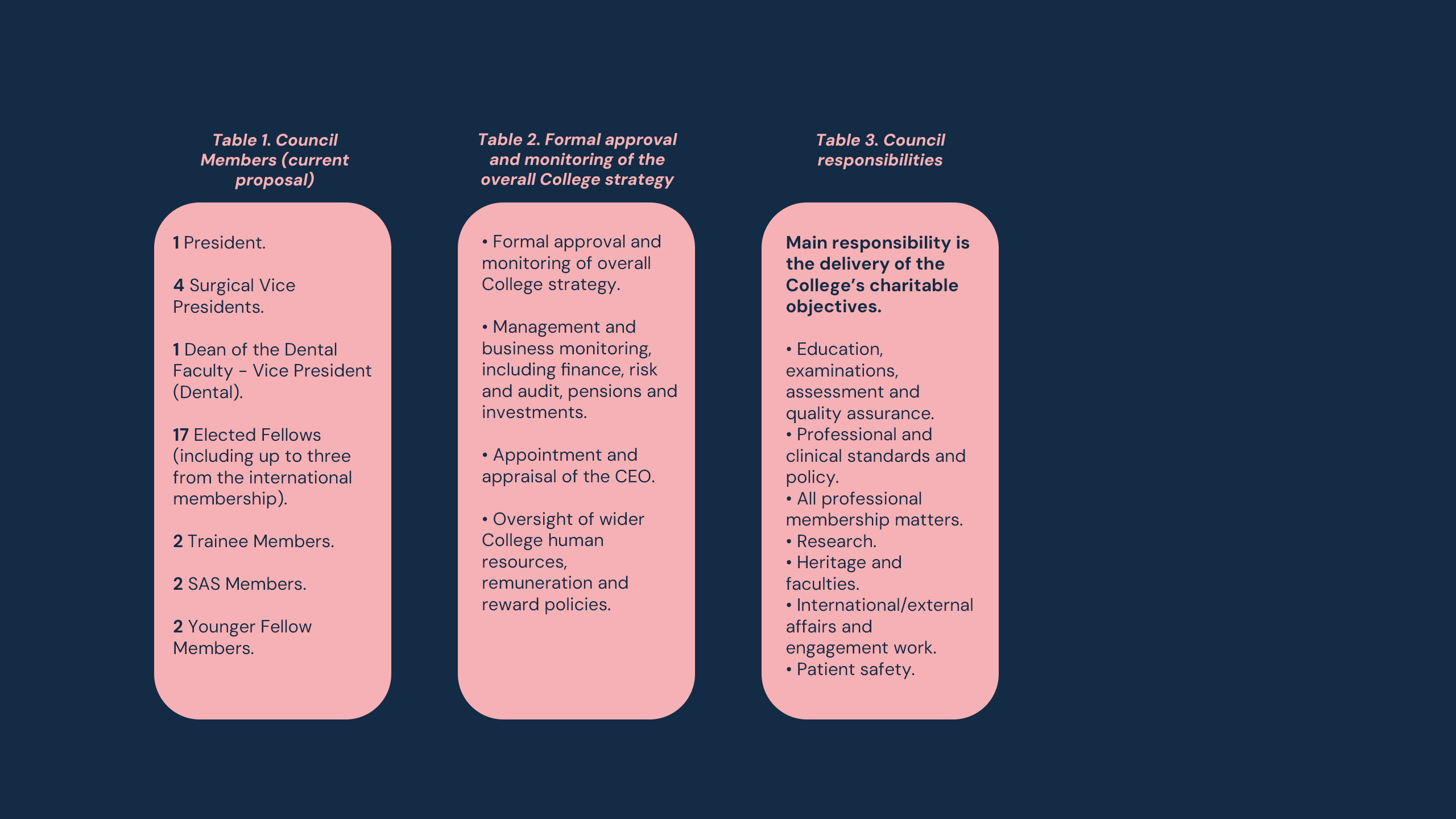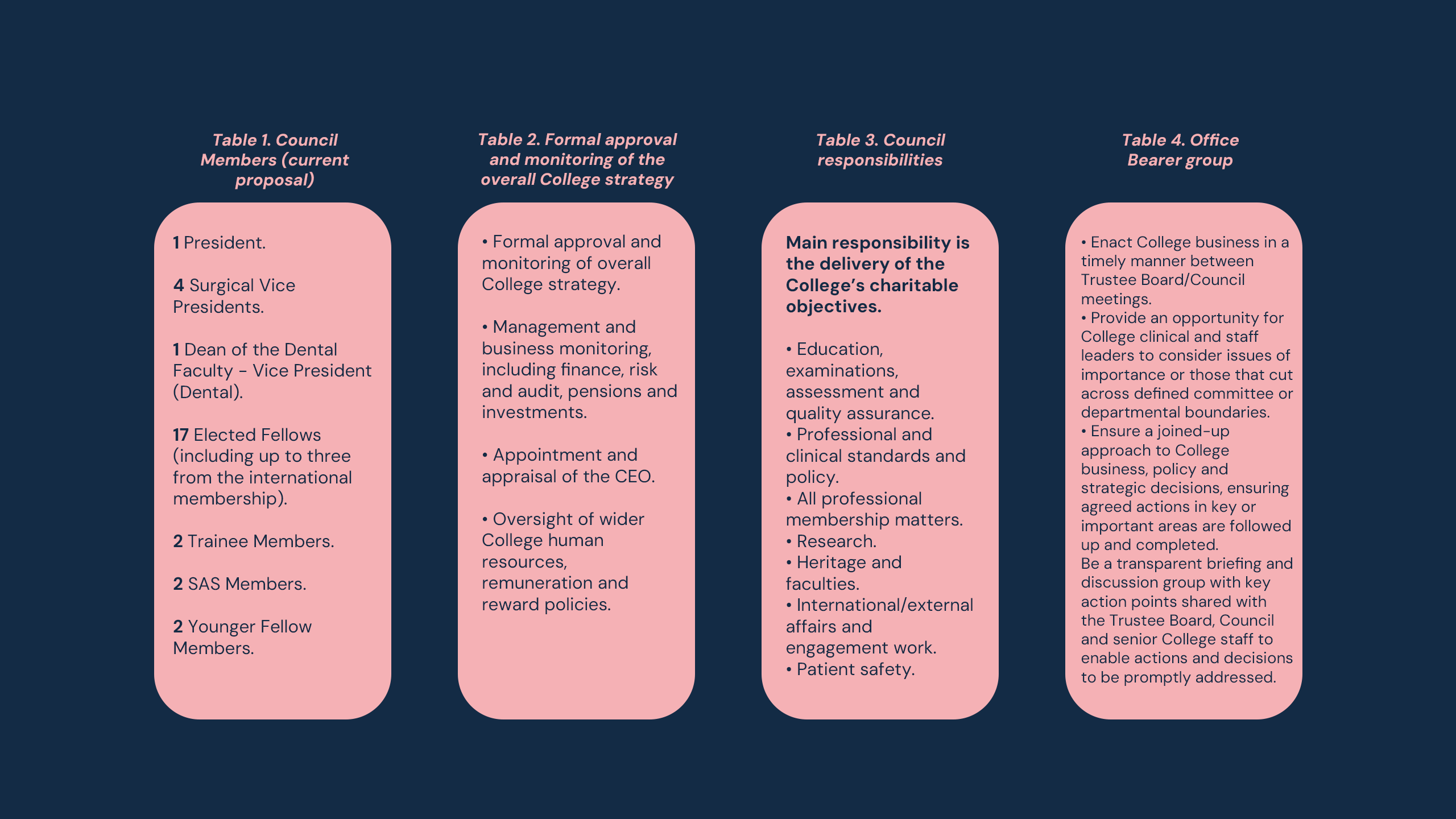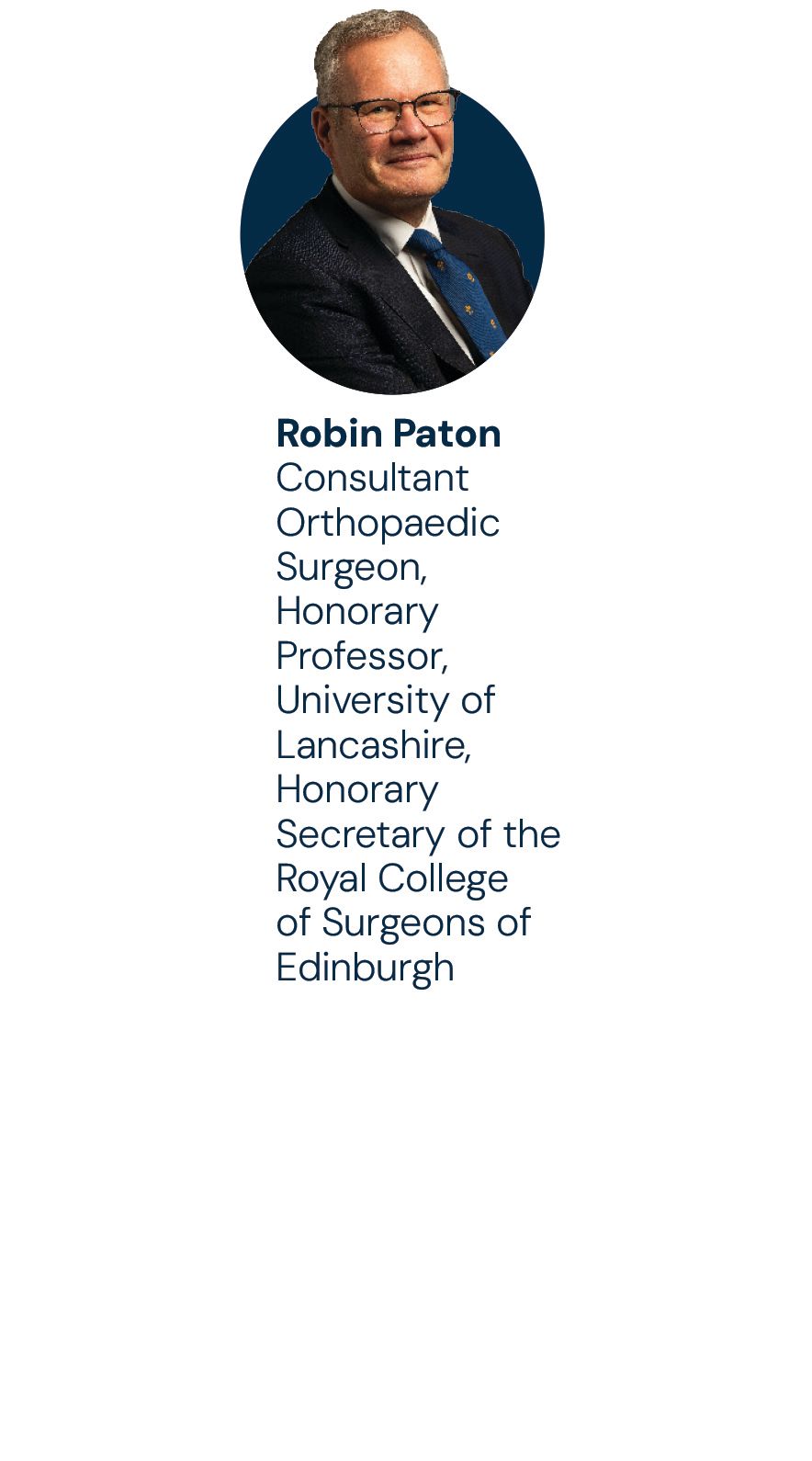Why has the College changed its governance?
The Royal College of Surgeons of Edinburgh was required to modernise its laws to comply with charity legislation and best practice guidelines, splitting responsibilities between a new Trustee Board and the Council. Robin Paton explains more

The last Royal College Charter was amended in the early 1970s. Since then, there have been many changes to the membership of the College – and to society itself. Since 1505, the College has constantly evolved and modernised to keep at the forefront of surgical education, training, examinations, assessment and the maintenance of standards (its founding values). Regenerating regularly, a little like Doctor Who! The key objectives in the governance review include transforming the College structure, increasing transparency and enhancing engagement with the College Members (in this context including Fellows and Members)..
Changes to charity laws and charity good practice guidelines made modernisation imperative. The College is a complex organisation with both business and charitable aims. Currently, all Council Members are trustees of the College with important legal responsibilities. At present, the elected Council Members’ length of term is five years, and they can serve for two terms, (not including Office Bearer posts). There are 17 Council Members (15 elected Members plus one trainee and one SAS representative), and six Office Bearers – the President (elected by the Council on a three-year term), two Vice Presidents (elected by the Council on a three-year term), an Honorary Secretary and Honorary Treasurer (both appointed on a three-year term, extendible to four years) and the Dental Dean (elected from the Dental Council on a three-year term). The current Council elections are by a secret ballot of Members and Fellows of the College via post and electronically. The nomination process is monitored by Civica Election Services (CES).
In 2022, Ms Clare McNaught, then Honorary Secretary, led a Short Life Working Group to assess the best options to modernise and reform the governance of the College in relation to best practice guidance. These recommendations were accepted by the Council and reform of the College Laws was presented to the Privy Council Office (PCO) in 2023 for approval in its application for an amended Royal Charter. Following consultation, the initial application was approved by the PCO in late 2024, though there are several more steps to be taken before an amended Royal Charter can be granted. This included assessment by the Scottish government and an eight-week period of gazetting the proposed changes to the College Royal Charter and Laws in the Edinburgh Gazette.
These changes were approved by the College membership at an Annual General Meeting in November 2024. It is hoped that final approval from the PCO for the amended Royal College Charter will be granted in mid 2025. Many of the previous laws will be transferred into the regulations as this will allow flexibility and speeder decision-making as regulations can be changed by the Council without recourse to the PCO (as is necessary for law changes). Currently, the process is being led myself and the Head of Governance, Risk and Compliance, Mrs Lindsey Scott (supported by legal advice from Brodies Solicitors).
An important change involves the appointed Office Bearer roles of Honorary Secretary and Honorary Treasurer. These will become elected Vice President posts. The Dental Dean will also become a Vice President. The President and Vice President must be current or previously elected Council Members and will be elected from the Council by secret ballot every three years (the exception being the Dental Dean, who is elected by the Dental Council). Each of the Vice Presidents will have responsibility for a Portfolio Board which, in turn, will oversee several committees headed by Council Members. It is envisaged that separate Portfolio Boards will cover membership, learning and assessment, research and quality assessment, global and external engagement, and dental matters. In addition, it is proposed that there will be 17 elected Council Members (with up to three international Members) and the number of Members attending the Council will increase by 10 (two trainee Members, two SAS, two younger Fellows and the four appointed Deans (Examinations, Education, Quality Assurance and International Postgraduate).
Table 1 outlines the new Council structure. The new Council term will be three years and Members can be elected for a maximum of three terms (excluding Office Bearer roles). By increasing the number of Council Members and reducing the five-year term to three years, this should allow more Members to be involved in the College Council. It is hoped that these changes will make the Council more representative of the wider membership. Responsibilities will be split between a new Trustee Board and the Council. Not all Council Members will be trustees: only two appointed Council Members and the Office Bearers are Council representatives on the Trustee Board. The Trustee Board will be a mixture of Council Members (the six Office Bearers and two appointed Members of the Council) and four to five Lay appointed Members who have expertise in IT, fundraising, finance and education. Clinicians will always have a majority on this Board. The Lay appointed Members of the Trustee Board will give the College increased expertise and advice in areas important to the College, especially in matters relating to finance, risk and governance. This knowledge, support and advice will be invaluable to the Office Bearers and Senior Leadership Team. Trustee, Council and Office Bearer responsibilities are highlighted in Tables 2, 3 and 4.
In addition to the changes to the Council and the development of the Trustee Board, a new College Code of Conduct was introduced in 2024 for all volunteers involved in representing the College (Council Members, RSAs, SSB Members, examiners, course Members, etc.). This set out the behaviour expected from the membership and of those associated with the College, including zero tolerance of oppressive and inappropriate behaviour. Later this year there will be the introduction and modernisation of the College disciplinary system and procedures to reflect the Code of Conduct and to streamline processes to be fairer, more transparent, efficient and effective.
This year, the Council approved the modernisation of the election process, with new election documentation and a new code prohibiting canvassing or the use of College staff, information or lists (to adhere to data protection laws). A volunteer social media policy for use during elections is being developed and increased, targeted marketing of the election process to Members was approved.
Applicants for Council or Vice President positions will compose word-limited personal statements that will be available to view on the College website. The previous long timeline for the nomination and election of Council Members will be reduced and the nomination and election process will be overseen by CES. Committee and Faculty systems, processes and governance are being reviewed and modernised as part of the transformation agenda. It is proposed that other Lay representatives will be introduced to specific committees to share the burden of business governance between elected Council Members and those who possess wider professional expertise.
(scroll to reveal)




Read more


